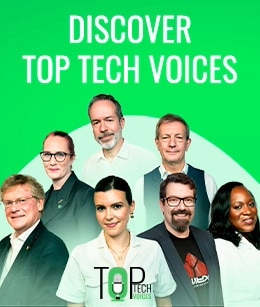StoreDot has developed new lithium-ion batteries that can fully charge in just five minutes. The company expects prototypes to be released later this year. (Image Credit: CHUTTERSNAP/Unsplash)
Electric vehicles are key to helping fight the climate crisis, but drivers often worry about running out of charge during a journey. Now, StoreDot has developed new lithium-ion batteries capable of fully charging in as little as five minutes. While StoreDot produced the batteries, they were manufactured by Eve Energy in China on standard production lines.
These super fast-charging batteries have been installed in phones, drones, and scooters. StoreDot has already produced 1,000 sample cells to showcase its technology to carmakers and other companies. Some of StoreDot’s investors include Samsung, Daimler, BP, and TDK.
Even though the batteries can be charged in five minutes, they require more powerful chargers than the ones we use today. StoreDot’s ultimate goal is to provide 100 miles of charge to a car battery in five minutes in 2025. “The number one barrier to the adoption of electric vehicles is no longer cost; it is range anxiety,” said Doron Myersdorf, CEO of StoreDot. “You’re either afraid that you’re going to get stuck on the highway, or you’re going to need to sit in a charging station for two hours. But if the experience of the driver is exactly like fuelling [a petrol car], this whole anxiety goes away.”
He added, “A five-minute charging lithium-ion battery was considered to be impossible. But we are not releasing a lab prototype, we are releasing engineering samples from a mass production line. This demonstrates it is feasible and it’s commercially ready.” Today’s lithium-ion batteries use graphite as a single electrode, into which the lithium ions are pushed to hold a charge. However, this can cause problems when they are quickly charging. The ions get blocked, causing them to change into metal and short circuit the battery.
StoreDot’s battery has a key difference. Instead of graphite, it uses semiconductor nanoparticles that allow ions to pass quickly and easily. The nanoparticles are based on germanium, which is water-soluble and easily handled in manufacturing. StoreDot wants to use a cheaper element, silicon and expects to have prototypes later in 2021. Costs would be equivalent to Li-ion batteries.
Several worldwide companies are producing fast-charging batteries. Tesla Enevate and Sila Nanotechnologies are working on silicon electrodes. Meanwhile, others are exploring various compounds, such as Echion, which utilizes niobium oxide nanoparticles. Elon Musk tweeted: “Battery cell production is the fundamental rate-limiter slowing down a sustainable energy future. Very important problem.”
Have a story tip? Message me at: http://twitter.com/Cabe_Atwell



-

dubbie
-
Cancel
-
Vote Up
0
Vote Down
-
-
Sign in to reply
-
More
-
Cancel
Comment-

dubbie
-
Cancel
-
Vote Up
0
Vote Down
-
-
Sign in to reply
-
More
-
Cancel
Children